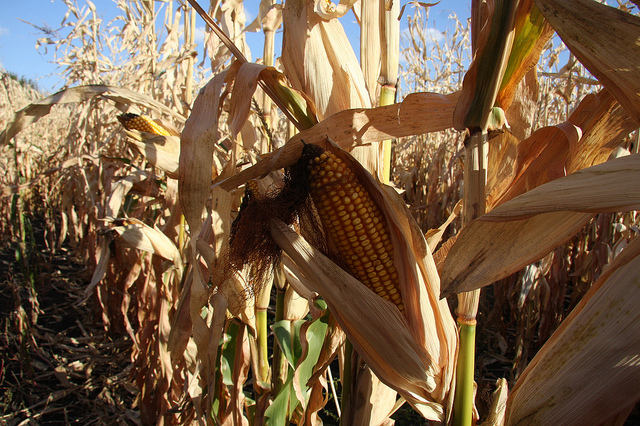A team of scientists at Virginia Tech University have recently found a way to use discarded corn husks and stalks to make an inexpensive, hydrogen fuel that does not produce any emissions of greenhouse gases.
This new process, discovered by the innovative team of researchers at Virginia Tech, could expedite the movement towards hydrogen-powered vehicles as it represents a much faster and less expensive production method.
The research marks significant progress in the production of clean biofuels, as it uses the waste products, rather than relying on the highly processed sugars that come from more valuable parts of the plant. Evidence is clear that this discovery speeds up the rate at which hydrogen is released and makes it considerably easier and cheaper to produce locally.
This news is particularly relevant, as less than a week ago the United States presented a plan to reduce emissions of greenhouse gases by 26-28% by 2025.
The United States is the second largest producer of greenhouse gases, after China, and has struggled to rally political support for legislation that would solidify international commitments to reduce emissions. This pledge was submitted to the United Nations Framework Convention on Climate Change, eight months prior to the Climate Change Conference, which will be held in France in December 2015.
Critics have warned that increased production of biofuels could cause a negative impact on food production, as more grains would be grown for fuel, rather than feeding the world’s hungry—this could obviously impact food supply and pricing around the globe, substituting one crisis for another. Food security is already a critical issue for many regions of the world and will only worsen as the impacts of climate change are more severely experienced through irregular weather patterns and water shortages.
However, the research from Virginia Tech is particularly promising, as this new technology would use the waste products from corn production, rather than using consumable grains.
We can only hope that the political leadership in Congress will begin to provide a legislative framework that promotes the research and development of alternative fuel sources, rather than perpetuating their enslavement to the fossil fuels industry. Without question, the fossil fuel lobby (guised as oil & gas, transportation, electric utilities, automotive, etc.) has a profound influence on public policy decisions.
Until our elected officials are willing to forgo campaign funding, in order to impede the rampant advancement of climate change, we are all in peril.
In spite of the political obstacles, the pioneering team of researchers at Virginia Tech has proven to the world that the technology does exist to make clean fuels efficiently and inexpensively. Their findings clearly demonstrate that the United States can fulfil its obligation to the world, to reduce greenhouse gas emissions, if these new production methods are embraced by government and industry.
But, we can’t just leave climate change in the hands of politicians, lobbyists, scientists and corporations—we all have to do our part to reduce our addiction to fossil fuels.
If we are truly devoted to preventing climate change, we must be willing to make radical changes in our own lives—we need to learn to live with less.
Our consumption patterns over the past 50 years are directly to blame for the brutal onset of climate change. Our contribution is to consume less: less water, electricity, fuel, plastics, animal products and all of the extraneous objects that are shoved down our eyes, ears, noses and throats a million times a day. Industry will stop producing if we stop buying.
Today we can applaud the victorious discovery made by the scientists at Virginia Tech—their success can strengthen our commitment to take back our planet, one husk at a time.
~
References:
Noticias Ambientales Internacionales
Noticias Ambientales Internacionales
~
Author: Peter Schaller
Editor: Katarina Tavčar
Photo: Alternative Heat on Flickr
~
Facebook is in talks with major corporate media about pulling their content into FB, leaving other sites to wither or pay up if we want to connect with you, our readers. Want to stay connected before the curtain drops? Get our curated, quality newsletters below!
 Share on bsky
Share on bsky





Read 5 comments and reply